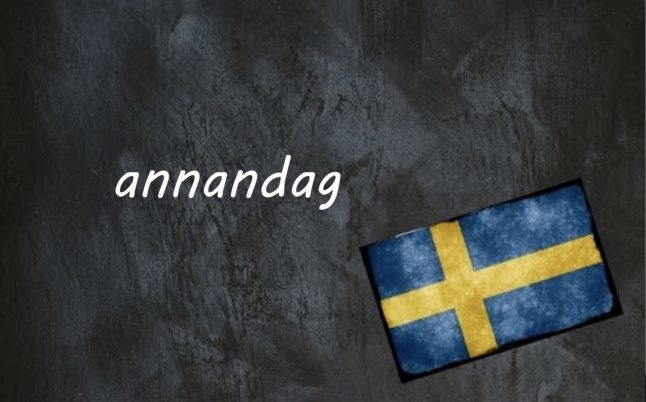Brandtal can be broken down into two words: brand (fire) and tal (speech).
Tala means 'to speak', and it's a synonym of prata (to talk). There is a bit of a difference between the two: tala is slightly more formal, and often refers to one-sided talking such as a speech or lecture, while prata is more informal and usually refers to conversations more generally. The noun ett tal means 'speech'.
And as regular readers of this column will know, brand is one of two common Swedish words for fire. Eld describes small, controlled fires or fire in general, and brand describes bigger, usually uncontrolled blazes.
A brandtal, then, is speech that uses fiery rhetoric. You might translate it in English as 'a rousing speech', 'a grand speech', or an 'impassioned speech'. It's usually combined with the verb hålla (to hold), as in hon höll ett brandtal (she gave an impassioned speech).
How you might react to an especially impressive brandtal. via GIPHY
It's actually a relatively new term in Swedish, and comes from the phrase brinna för, which literally means 'to burn for' but is used to refer to something you're especially dedicated to or passionate about. For example, jag brinner för integration (I'm passionate about integration) or jag brinner för fotboll (I'm passionate about football.
The word brandtal is often used to refer to speeches by politicians and activists (it's been used a lot recently to talk about the speeches by climate campaigner Greta Thunberg) but can also be used about ordinary people, for example if a teacher or work colleague talks during a lesson or meeting about a topic close to their heart.
To give another example, if an actor or sportsperson gives an ordinary thank you speech after winning an award, this wouldn't be considered a brandtal, but if they took the opportunity to talk about an issue such as equality in sport or diversity on screen, that could be a brandtal.
Brandtal comes with some related words, although they aren't very commonly used. Someone who gives a brandtal is a brandtalare (something like 'giver of an impassioned speech', but it rolls off the tongue much better in Swedish) and you can use the verb brandtala ('to give a rousing speech'). For example: Presidenten brandtalade om våld (the president gave an impassioned speech about violence).
Examples
Politikers brandtal väckte debatt om utbildning
The politician's impassioned speech started a debate on education
Kaptenen höll ett brandtall för läget
The captain gave a rousing speech to his team



 Please whitelist us to continue reading.
Please whitelist us to continue reading.
Member comments